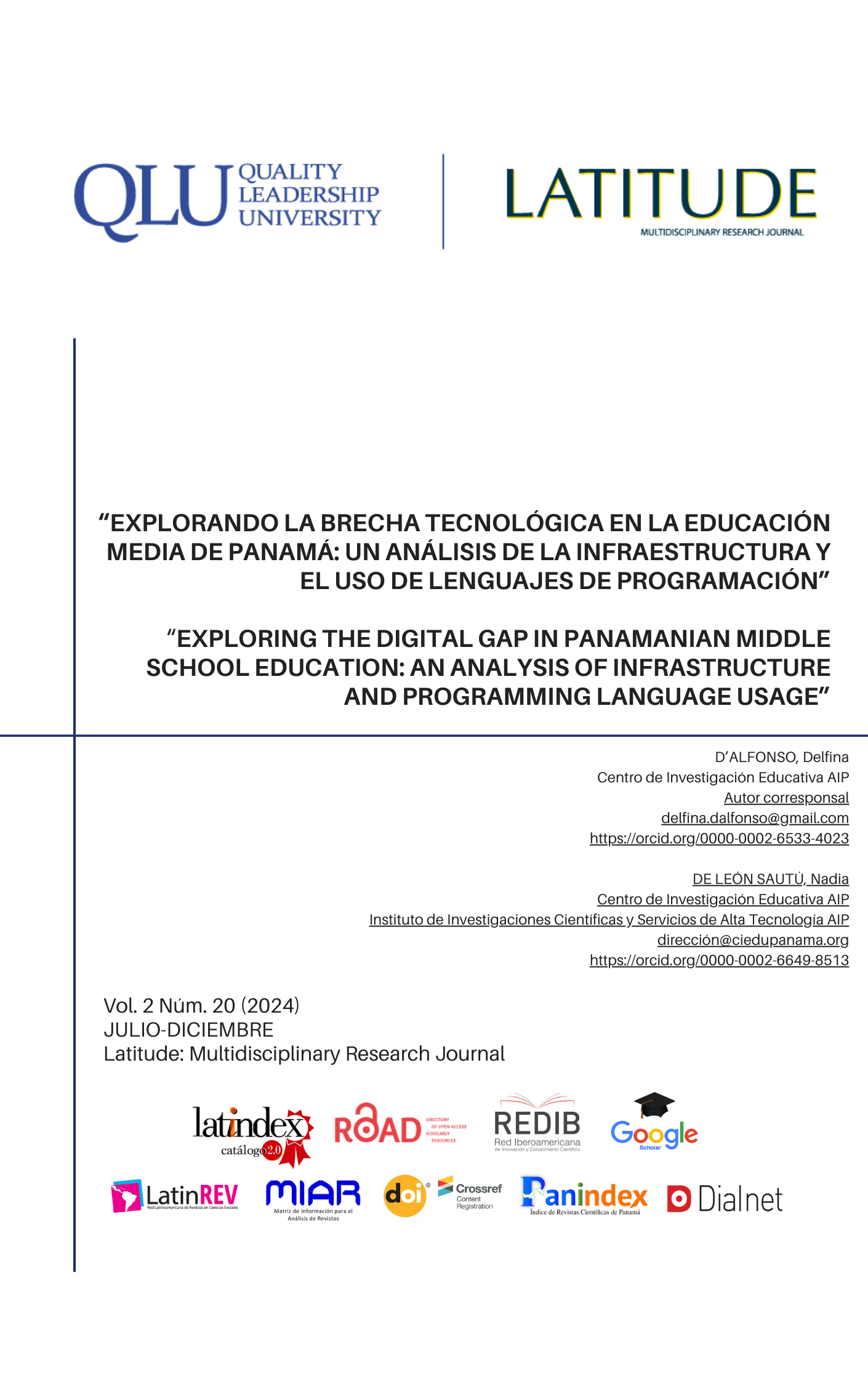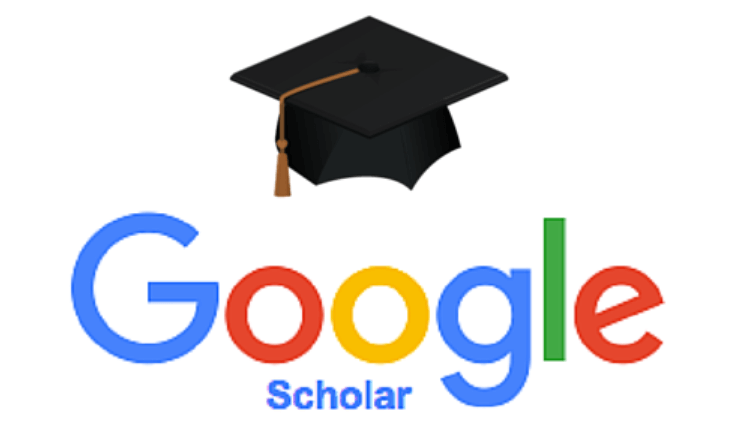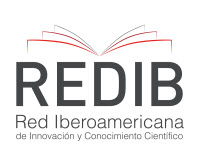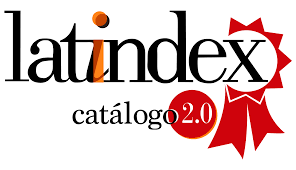

This work is licensed under a Creative Commons Attribution-NonCommercial-ShareAlike 4.0 International License.
Esta obra está bajo licencia internacional https://creativecommons.org/licenses/by-nc-sa/4.0/deed.es
La revista (y sus contenidos) emplean las licencias Creative Commons, específicamente la del tipo CC BY NC SA 4.0, la cual establece que “el beneficiario de la licencia tiene el derecho de copiar, distribuir, exhibir y representar la obra y hacer obras derivadas siempre y cuando reconozca y cite la obra de la forma especificada por el autor o el licenciante”. La licencia del tipo CC BY NC SA 4.0 contempla tres categorías,
- Atribución.
- No Comercialización de la obra.
- Compartir igual
Los lectores son libres de:
- Compartir — copiar y redistribuir el material en cualquier medio o formato
- Adaptar — remezclar, transformar y construir a partir del materialLa licenciante no puede revocar estas libertades en tanto usted siga los términos de la licencia
- Siempre y cuando se respeten y contemplen la atribución de autoría y la no comercialización del material.
Abstract
Taking into account the increasing importance of technology in education, this article examines the technological infrastructure and the use of programming languages in middle schools in the metropolitan region of Panama, through a descriptive study of a sample of 24 schools participating in the 2019 National Informatics Olympiad (ONI in Spanish). Data collection was conducted through a survey designed by the ONI organizing team. Differences between public and private schools were evident in terms of technological infrastructure and use of programming tools. Private schools have more resources, utilize a wider variety of programming languages, and do so more frequently. It was also found that, in general, the most commonly used languages are not those recommended by the latest international literature on teaching programming at the secondary level, nor are they the most complementary to rapidly growing technological fields. The findings highlight the need to address disparities in technology access between public and private schools, as well as to promote teacher training and coordinate educational policies that encourage the use of programming languages that best suited for the secondary school students and that best complement the rapid advances in artificial intelligence.
References
Asamblea Nacional. (2022). Ley 294 del 6 de abril del 2022 Que establece los lineamientos generales para las políticas públicas educativas dirigidas a la transformación digital de la educación. Gaceta Oficial. Recuperado el 10 de julio del 2024 desde: https://cdn.corprensa.com/la-prensa/uploads/2022/04/06/Gaceta%20Oficial%20Ley%20No.%20294.pdf
Cabero Almenara, J., & Valencia Ortiz, R. (2019). TIC para la inclusión: una mirada desde Latinoamérica. Aula Abierta, 48(2), 139-146 https://doi.org/10.17811/rifie.48.2.2019.139-146
CEPAL (2015). Agenda digital para América Latina y el Caribe (eLAC2018). Santiago de Chile: CEPAL. Recuperado el 5 de julio del 2024 desde: https://www.cepal.org/es/publicaciones/38886-agenda-digital-america-latina-caribe-elac2018
Chaouchi, H., y Bourgeau, T. (2020). Will all jobs require programming skills in the growing digital society? Digital skills insights, 11-26. Recuperado el 5 de julio del 2024 desde: https://academy.itu.int/itu-d/projects-activities/research-publications/digital-skills-insights/digital-skills-insights-2020
d AIP. (2024). Lectoescritura en foco: factores que influyen en el rendimiento lector en Panamá. Recuperado el 9 de julio del 2024 desde: https://ciedupanama.org/infografico-lectoescritura-en-foco/
CIEDU & American University. (2022). Diagnóstico del Perfeccionamiento Docente de Panamá. Recuperado el 11 de julio del 2024 desde: https://ciedupanama.org/como-aprenden-quienes-ensenan/
Csizmadia, A., Standl B. & Waite J. (2019). Integrating the Constructionist Learning Theory with Computational Thinking Classroom Activities. Informatics in Education - An International Journal, 1, 41-67. https://doi.org/10.15388/infedu.2019.03
CSTA. (2016). K–12 Computer Science Framework. Recuperado de http://www.k12cs.org.
D'Alfonso, D., Warren, N., González, E., Rodríguez, A., Pitti, K., & De León, N. (2021). Prácticas docentes de aula en la enseñanza del pensamiento computacional en escuelas medias oficiales y particulares de la región metropolitana de la Ciudad de Panamá. Acción y Reflexión Educativa, (46), 207–230. https://doi.org/10.48204/j.are.n46a9
Deuze, M. (2006). Participation, remediation, bricolage: Considering principal components of a digital culture. The information society, 22(2), 63-75. https://doi.org/10.1080/01972240600567170
De León Sautú, N., & González, E. (2020). Educación en Tiempos de COVID-19. Recuperado el 5 de julio del 2024 desde: https://ciedupanama.org/wp-content/uploads/2020/09/Informe_Educación-en-Tiempos-COVID-_-CIEDU-1.pdf
Do Nascimento, M. D., Félix, I. M., Ferreira, B. M., de Souza, L. M., Dantas, D. L., de Oliveira Brandão, L., & de Oliveira Brandão, A. (2019,). Which visual programming language best suits each school level? A look at Alice, iVProg, and Scratch. In 2019 IEEE World Conference on Engineering Education (EDUNINE) (pp. 1-6). IEEE.
Duarte, J., Gargiulo, C., & Moreno, M. (2011). Infraestructura Escolar y Aprendizajes en la Educación Básica Latinoamericana: Un análisis a partir del SERCE. Banco Interamericano de Desarrollo. División de Educación (SCL/EDU). NOTAS TÉCNICAS # IDB-TN-277.
Espinoza, T. (2021, Agosto 27). Presentan propuesta de ley que busca hacer obligatoria la asignatura de Informática. Televisora Nacional, S.A. Recuperado el 10 de julio del 2024 desde: https://www.tvn-2.com/nacionales/presentan-establecer-obligatoriedad-asignatura-informatica_1_1069816.html
Frittelli, V., Serrano, D., Teicher, R., Steffolani, F., Tartabini, M., Fernández, J., & Bett, G. (2013). Uso de python como lenguaje inicial en asignaturas de programación. Editor Responsable, 3, 132-137.
García Monsálvez, J. C. (2017). Python como primer lenguaje de programación textual en la Enseñanza Secundaria. Education in the Knowledge Society (EKS), 18(2), 147–162. https://doi.org/10.14201/eks2017182147162
Gillis, A. (Enero 2024). object-oriented programming (OOP). En TeachTarget. Recuperado el 11 de julio de 2024 desde: https://www.techtarget.com/searchapparchitecture/definition/object-oriented-programming-OOP#:~:text=Object%2Doriented%20programming%20(OOP)%20is%20a%20computer%20programming%20model,has%20unique%20attributes%20and%20behavior.
Grandell, L., Peltomaki, M., Back, R. J., & Salakoski, T. (Enero 2006). Why complicate things?: introducing programming in high school using Python. En ACM International Conference Proceeding Series (Vol. 165, pp. 71-80).
Karatrantou, A., Panagiotakopoulos, C., & Patras, A. S. P. A. I. T. E. (Noviembre 2008). Algorithm, pseudo-code and Lego Mindstorms programming. En Proceedings of International Conference on Simulation and Programming for Autonomous Robots/Teaching with Robotics: Didactic Approaches and Experiences, Venice, Italy (pp. 70-79).
Konecki, M., Flajšek, M., Pihir, I., & Oreški, D. (2018). Programming Languages Used for Educational Purpose. Proceedings of The 13th MAC 2018, 208.
León, M., Svenson, N. A., Psychoyos, D., Warren, N., De Gracia, G., & Palacios, A. (2022). WhatsApp Remote Reading Recovery: Using Mobile Technology to Promote Literacy during COVID-19. IAFOR Journal of Education: Studies in Education. 10 (3), 107-125. https://doi.org/10.22492/ije.10.3.06
Magallón, Y. I. S., Pinzón, L. G. M., & de Miranda, N. G. M. (2018). Plataforma digital integrada con energías renovables para la enseñanza en escuelas de difícil acceso en Panamá. International Journal of Knowledge Engineering and Management, 7(17), 84-103. https://doi.org/10.47916/ijkem-vol7n17-2018-5
Martínez, M. C., & Echeveste, M. E. (2018). Experiencias de programación en las escuelas. Cuadernos De Educación, 16(16). Recuperado el 5 de julio del 2024 desde: https://revistas.unc.edu.ar/index.php/Cuadernos/article/view/22971
MEDUCA. (2022). Cantidad de centros educativos con acceso a internet por fuentes según regional educativa en la dependencia oficial. Año 2022. Recuperado el 11 de julio del 2024 desde: https://www.meduca.gob.pa/direccion-plane/estadisticas
Murillo, F. J., Martínez-Garrido, C., & Graña, R. (2020). Escuelas públicas para pobres, escuelas privadas para ricos: relación entre educación privada y segregación escolar de carácter socio-económico en América Latina. Revista científica RUNAE, 5, 11-22. https://revistas.unae.edu.ec/index.php/runae/article/view/426
Papert, S. (1993). Mindstorms: Children, Computers and Powerful Ideas. Basic Books, Nueva York.
Raschka, S., Patterson, J., & Nolet, C. (2020). Machine learning in python: Main developments and technology trends in data science, machine learning, and artificial intelligence. Information, 11(4), 193. https://doi.org/10.3390/info11040193
Ristić, O., Milošević, D., & Urošević, V. (2016). The importance of programming languages in education. Technics and Informatics in Education 6th International Conference, Faculty of Technical Sciences, Čačak, Serbia, 28−29th May 2016.
Russell, S. J., & Norvig, P. (2016). Artificial intelligence: a modern approach. Pearson.
Thompson, J., Wu, S. P., & Mills, J. (Junio, 2020). The use of computer programming in a secondary mathematics class. En 2020 ASEE Virtual Annual Conference Content Access.
UNESCO (2017). ICT, education and social development in Latin America and the Caribbean. Montevideo: UNESCO Office Montevideo. Recuperado el 1 de julio del 2024 desde: https://unesdoc.unesco.org/ark:/48223/pf0000262862_eng
UNESCO. (13 de julio del 2021). Information and communication technology (ICT) in education. Recuperado el 1 de julio de 2024 desde: https://learningportal.iiep.unesco.org/en/issue-briefs/improve-learning/information-and-communication-technology-ict-in-education
Vidal, C. L., Cabezas, C., Parra, J. H., & López, L. P. (2015). Experiencias prácticas con el uso del lenguaje de programación Scratch para desarrollar el pensamiento algorítmico de estudiantes en Chile. Formación universitaria, 8(4), 23-32. http://dx.doi.org/10.4067/S0718-50062015000400004
Villarreal, N. (2012). Proyecto Aulas Fundación Telefónica del Programa Proniño Panamá: una experiencia de educación inclusiva con el uso de las TIC. En: Sunkel, G. & Trucco, D. Eds. (2012). Las tecnologías digitales frente a los desafíos de una educación inclusiva en América Latina: Algunos casos de buenas prácticas. CEPAL, Santiago de Chile. Recuperado de: https://repositorio.cepal.org/server/api/core/bitstreams/5f3b7544-7695-4e4f-b838-f87375a9e0c4/content
















